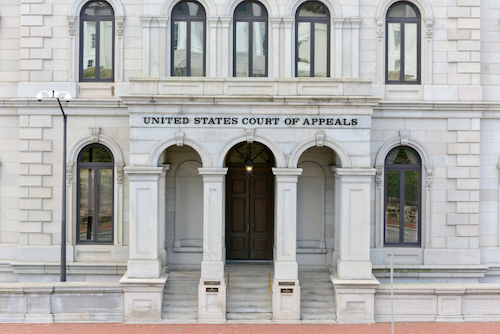- Appellate Consulting, Appellate Litigation
Appealing a trial court decision can feel like the case will drag on forever. In reality, however, cases can and often do settle while on appeal. Part of the appellate strategy involves helping clients understand and navigate settlements at this stage.
Gusdorff Law specializes in state and federal appeals in California, and provides appellate counseling services to trial litigators to help them develop effective strategies. If you have questions about appeals, we are here to answer them.
Factors to Consider in Settlement Negotiations
Time
One of the most critical factors to consider is the time involved in the appeals process. Appeals in California can take a minimum of 12 to 18 months, and this timeframe can extend further if the parties decide to appeal to the state or U.S. Supreme Court. Federal appeals could take up to two years. Working with legal counsel, clients need to weigh these realistic timeframes against an offer to settle.
Cost
Appeals cost money, and the expenses can vary depending on the complexity of the case. Generally, the longer an appeal takes, the more money will likely be spent. Depending on the underlying facts, an aggrieved party may also be losing money due to an adverse trial decision.
Costs come in many forms, including:
- Attorney fees
- Court fees
- Lost income due to prolonged litigation
These costs need to be carefully weighed during settlement negotiations.
Damages
Another essential consideration is whether and to what extent damages were ordered at the trial level. Even if a party won big at trial, the victory could be fleeting. The California Court of Appeal or the Ninth Circuit could ultimately reduce the damages. Therefore, the risk/reward analysis of damages has to be factored into settlement discussions.
It may make sense for the parties to exchange a sum certain and conclude the matter once and for all.
Precedent
Time and money may not significantly impact one or both parties, but the desire to set precedent can be a major factor. This is particularly important if one or both parties wish to continue a course of action or prohibit one. Seeking clarity through the appellate process may be worth the expense and time.
The Role of The Appellate Court
Appellate courts play a crucial role in the legal system by reviewing the decisions of lower courts. They ensure that the trial court’s decision was based on a correct application of the law. The primary functions of appellate courts include:
- Reviewing legal arguments presented in written briefs
- Hearing oral arguments from attorneys
- Examining the trial court’s record for errors
The appellate court will not retry the case but will determine whether the law was applied correctly. This review process is essential in maintaining the integrity of the judicial system.
Other Factors to Consider
- The odds that either party will ultimately be able to pay damages ordered at trial
- The risk of reversal and a new trial, further delaying the ultimate outcome
- Whether the parties are genuinely prepared for the “long haul” or just want the matter to end
- The relative strength of the parties’ legal arguments
Bear in mind that any of these factors could cut both ways. An appellant may desire to set a precedent supporting a particular contract interpretation. However, there’s always the chance that the Court of Appeal may set an unfavorable precedent.
Weigh these factors with an experienced appellate attorney to make an informed decision.
Advising You and Your Team on All Aspects of California Appeals
Ideally, settlement negotiations will be ongoing from the trial phase. While cases can settle at any point, it’s generally advisable to settle them early. And not just because of the criteria mentioned above. Many appellate judges view their role not only to settle cases but to establish law.
Although they may be happy to see that the parties resolved their issues, they’d prefer earlier settlements. Court time and resources, after all, could be devoted to more contentious appeals.
Your Path to a Successful Settlement
Understanding the Appeals Process
The appeals process is intricate and requires a deep understanding of both trial and appellate court systems. Here are some key points:
- Notice of Appeal: This is the first step in the appeals process, informing the court and the opposing party of your intent to appeal the trial court’s decision.
- Filing Written Briefs: Both parties will submit written briefs to the appellate court, outlining their arguments and legal foundations.
- Oral Arguments: In some cases, the appellate court may schedule oral arguments where attorneys can further explain their positions.
- Appellate Court’s Decision: The appellate court will review the case, considering all briefs and arguments, and issue a ruling.
The Role of Different Courts
- Trial Court: The court where the case originates, where factual findings are made.
- Appellate Court: Reviews the trial court’s decision for legal errors. This court does not retry the case but focuses on whether the law was applied correctly.
- Supreme Court: The highest court, which may choose to review the appellate court’s decision.
Can You Appeal a Settlement?
In most cases, once a settlement is agreed upon and approved by the court, it cannot be appealed. Settlements are typically voluntary agreements between the parties to resolve the dispute without further litigation.
However, if there is a mistake in the settlement agreement, or if it was reached under duress or fraud, it may be possible to challenge the settlement in court.
Schedule a Consultation with Gusdorff Law to Navigate Your California Appeal and Settlement
If you want to learn more about California appeals and settlements, it’s time to speak with Janet Gusdorff and the expert team at Gusdorff Law. Navigating the appeals process requires experienced legal guidance, and we are committed to helping you achieve the best possible outcome.
Contact us today to schedule a consultation and take the first step towards resolving your case efficiently and effectively. Let us help you understand your options and develop a strategy that aligns with your goals.
Ensuring a Smooth Appeals Process
Appealing a case is not just about understanding the law; it also involves strategic planning and effective communication with all parties involved. Here’s how Gusdorff Law can assist:
- Expert Consultation: We provide comprehensive consultations to understand the nuances of your case.
- Strategic Planning: Our team develops tailored strategies to maximize the chances of a favorable outcome.
- Effective Communication: We ensure clear and consistent communication with clients, keeping them informed at every stage.
Key Benefits of Early Settlement
Early settlement during the appeals process offers several advantages:
- Reduced Costs: Settling early can significantly reduce legal expenses.
- Time Efficiency: An early resolution means less time spent in prolonged litigation.
- Certainty and Control: Settling gives parties more control over the outcome, rather than leaving it in the hands of the court.
- Preservation of Relationships: Early settlement can help preserve business or personal relationships that might otherwise be strained by ongoing litigation.
Comprehensive Legal Support
At Gusdorff Law, we understand that every case is unique. We provide personalized legal support tailored to the specific needs of each client. Our services include:
- Detailed Case Analysis: We meticulously review the trial court’s decision, identifying potential grounds for appeal.
- Drafting Strong Briefs: Our team excels in writing persuasive briefs that effectively present legal arguments.
- Oral Argument Preparation: We thoroughly prepare for oral arguments, ensuring that we can effectively advocate for our clients.
Navigating the appeals process can be complex and daunting. However, with the right legal support, you can make informed decisions that align with your best interests. Gusdorff Law is dedicated to providing the highest level of appellate representation, ensuring that our clients receive the guidance and advocacy they need.
Take Action Today: Secure Expert Legal Representation for Your Appeal
If you’re considering an appeal or need assistance with settlement negotiations, don’t hesitate to reach out to Gusdorff Law. Our experienced team is ready to help you understand your options and develop a winning strategy.
Contact us today to schedule a consultation and take the first step towards a successful resolution of your case. Let Gusdorff Law be your trusted partner in navigating the appeals process.
Contact Gusdorff Law now at 818-877-4515 and secure the representation you need for your appeal!












